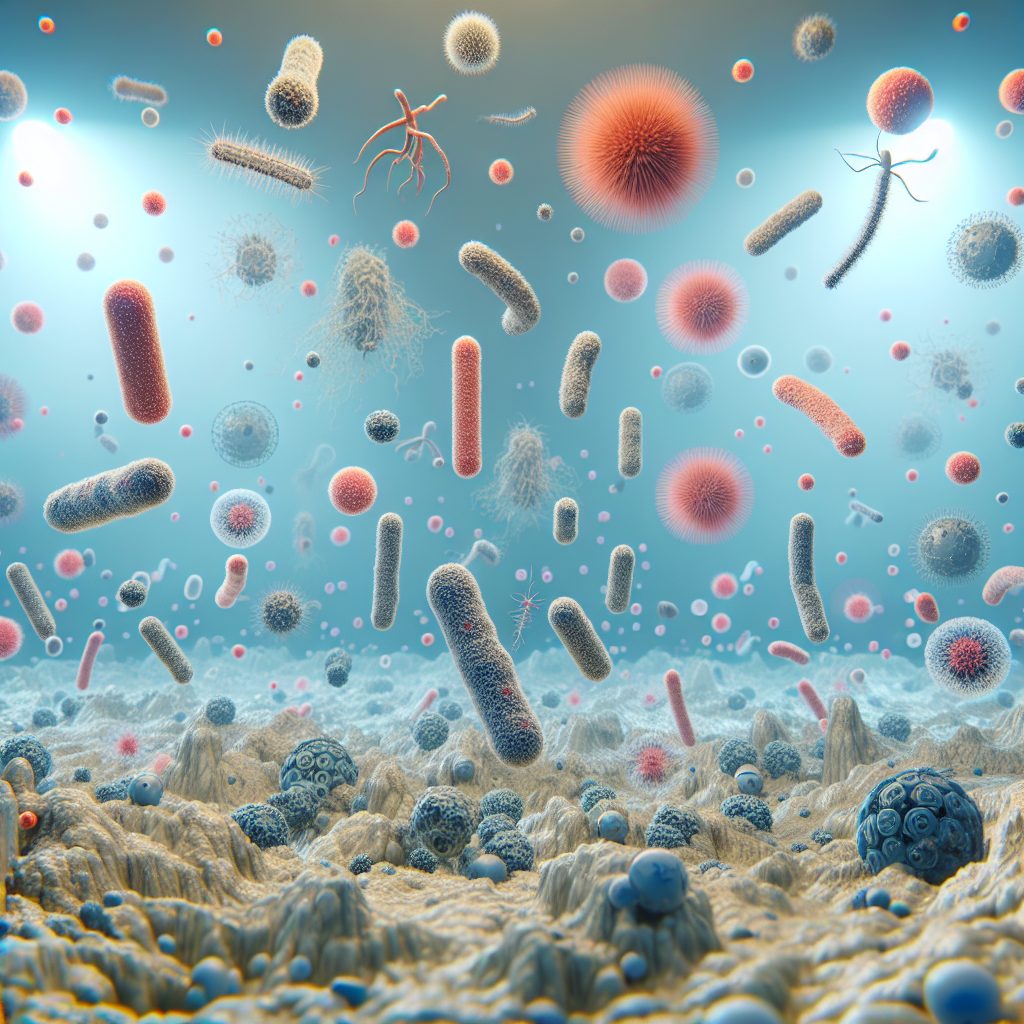
Air quality monitoring plays a crucial role in ensuring the health and well-being of individuals and the environment. By definition, it refers to the practice of measuring and reporting the levels of various pollutants in the air we breathe. Did you know that poor air quality can have significant impacts on our health? From respiratory problems to chronic diseases, the consequences of polluted air can be severe. This underlines the importance of actively monitoring air quality to identify potential risks and take appropriate measures to mitigate them. In the upcoming sections, we will delve into the key takeaways of monitoring air quality and how it can positively impact our lives.
When it comes to air quality monitoring, there are several unique features that make it an essential practice. Firstly, it provides real-time data on pollutant concentrations in specific locations. This data allows policymakers, city planners, and researchers to identify areas with high levels of pollution and implement targeted interventions to reduce emissions. Additionally, air quality monitoring enables us to evaluate the effectiveness of pollution control measures and make necessary adjustments accordingly. By continuously monitoring air quality, we can develop comprehensive strategies to improve the overall quality of the air we breathe.
Now that we understand the significance of monitoring air quality and its unique features, let’s explore the key takeaways in detail. We will discuss the importance of early detection of air pollutants, the role of technology in air quality monitoring, and the potential benefits of effective air quality management. Stay tuned for the upcoming sections as we delve deeper into these crucial aspects.
key Takeaways
1. Monitoring air quality is crucial to understand the presence of harmful pollutants and their impact on human health.
2. Regular monitoring allows for the identification of pollution sources and the implementation of effective mitigation measures.
3. Accurate monitoring data helps in developing policies and regulations for pollution control and creating awareness among the public.
4. Real-time monitoring systems enable immediate responses to sudden changes in air quality, protecting vulnerable populations and informing emergency management.
5. Collaboration between governments, organizations, and individuals is essential to establish a comprehensive monitoring network and improve air quality globally.
Why is Monitoring Air Quality Important for Your Health and the Environment?
The Impact of Poor Air Quality on Health
Poor air quality can have detrimental effects on both your health and the environment. When you inhale polluted air, it can lead to respiratory issues such as asthma, bronchitis, and even lung cancer. The presence of harmful pollutants in the air can also exacerbate pre-existing conditions, making it vital to monitor air quality regularly.
Environmental Consequences of Air Pollution
Monitoring air quality is not only crucial for our health but also for the environment. Air pollution contributes to the degradation of ecosystems, harms wildlife, and damages vegetation. It directly affects the quality of soil and water, leading to long-term environmental consequences. By monitoring air quality, we can take proactive measures to minimize pollution and preserve our planet.
The Importance of Real-Time Air Quality Data
Having access to real-time air quality data is essential for several reasons. Firstly, it enables individuals to make informed decisions regarding outdoor activities, especially for people sensitive to pollutants. Secondly, businesses and industries can identify pollution sources and take appropriate measures to mitigate their impact. Lastly, policymakers rely on accurate air quality data to create effective regulations and strategies to combat air pollution on a larger scale.
The Role of Monitoring in Identifying Pollutants
Monitoring air quality helps in identifying specific pollutants present in the atmosphere. This information is crucial for understanding the sources and patterns of pollution. By monitoring air quality, researchers can measure levels of pollutants such as nitrogen dioxide, ozone, particulate matter, and volatile organic compounds. Identifying the types and sources of pollutants paves the way for implementing targeted solutions and reducing pollution effectively.
Improving Air Quality and Public Awareness
Regular monitoring of air quality helps raise public awareness about the severity of the issue and encourages individuals to take action. By providing accessible and easily understandable air quality information to the public, people can make conscious choices to reduce their contribution to pollution. Monitoring also allows authorities to track air quality improvement over time and measure the effectiveness of implemented measures.
Important Tips for Monitoring Air Quality
1. Install Indoor Air Quality Monitors
To ensure the air you breathe at home or in the workplace is clean, consider installing indoor air quality monitors. These devices measure various pollutants and provide real-time information about the air quality indoors.
2. Stay Informed with Air Quality Index (AQI) Updates
Regularly check the Air Quality Index (AQI) provided by reputable sources. AQI is a numerical scale that indicates the current air quality and associated health effects. By staying informed, you can plan outdoor activities accordingly, especially if you have respiratory conditions.
3. Support Community Monitoring Initiatives
Engage in community monitoring initiatives to contribute towards improving air quality. Participate in citizen science projects or join local organizations that promote monitoring and provide resources to combat pollution collectively.
4. Reduce Your Carbon Footprint
Minimizing your carbon footprint can significantly impact air quality. Choose eco-friendly transportation options, conserve energy, and opt for renewable energy sources. By reducing your carbon emissions, you contribute to reducing air pollution levels.
5. Advocate for Clean Air Policies
Get involved in advocating for clean air policies by supporting organizations that work towards improving air quality. Stay informed about current regulations, attend public hearings, and voice your concerns to decision-makers to drive positive change.
Frequently Asked Questions
1. Why is air quality monitoring important?
Air quality monitoring is important because it helps us understand the pollution levels in the environment. By monitoring air quality, we can identify harmful pollutants and take necessary actions to reduce their impact on human health.
2. How does air quality affect our health?
Poor air quality can have severe health consequences, leading to respiratory issues, allergies, and even chronic diseases such as asthma and heart disease. Monitoring air quality allows us to mitigate these risks and protect our well-being.
3. Who should be concerned about air quality monitoring?
Everyone should be concerned about air quality monitoring as it affects people of all ages and backgrounds. However, individuals living in highly polluted areas, children, and elderly people are especially vulnerable and need to be more vigilant.
4. What are the main sources of air pollution?
The main sources of air pollution include industrial emissions, vehicle exhaust, burning of fossil fuels, agricultural activities, and household pollutants. Monitoring air quality helps us identify these sources and implement appropriate measures to reduce pollution levels.
5. How can air quality monitoring be done?
Air quality monitoring can be done through the use of specialized monitoring stations that measure various pollutants in the air. These stations collect data on particulate matter, ozone levels, carbon monoxide, and other harmful substances, providing valuable insights into the air quality in a particular area.
6. What are the benefits of monitoring air quality?
Monitoring air quality allows us to measure the effectiveness of pollution control measures, evaluate the impact of industrial activities on the environment, and raise awareness about the importance of clean air. It also helps in making informed decisions to improve air quality standards.
7. Can individuals contribute to air quality monitoring?
Absolutely! Individuals can contribute to air quality monitoring by reporting any suspected sources of pollution or participating in citizen science projects. By being aware of their own carbon footprint and adopting sustainable practices, individuals can make a significant difference in improving air quality.
8. How does air quality monitoring help in urban planning?
Air quality monitoring data plays a crucial role in urban planning by identifying areas with high pollution levels. This helps city planners make informed decisions about the placement of industries, construction projects, and green spaces to create a healthier living environment for the residents.
9. Are there any regulations governing air quality monitoring?
Yes, many countries have established regulations and standards for air quality monitoring. These regulations enforce the monitoring of specific pollutants, set limits for acceptable levels, and define penalties for non-compliance. It ensures that industries and governments are accountable for maintaining clean air.
10. What actions can be taken based on air quality monitoring results?
Air quality monitoring results can trigger various actions such as implementing stricter emission controls, investing in renewable energy sources, promoting public transportation, and creating awareness campaigns to reduce individual contributions to air pollution.
Final Thoughts
Monitoring air quality is not just a responsibility of environmental agencies or governments; it is a collective effort that requires active participation from individuals, communities, and industries. By recognizing the importance of clean air and taking necessary measures to improve air quality, we can create a healthier and sustainable future.
Regular monitoring, awareness, and actions based on air quality data are essential to combat air pollution and its harmful consequences. Let us strive to make air quality monitoring a priority in our lives and work towards a cleaner and safer environment for generations to come.



